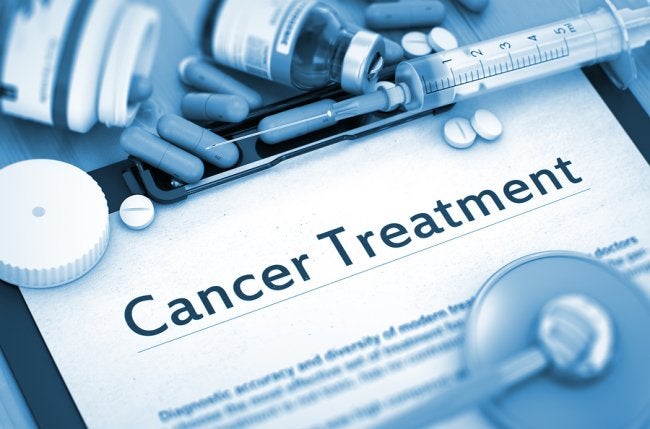-
Clinical Trials for Cancer: A Patient’s Guide to Making the Decision

Cancer treatment for kidney, bladder, and prostate cancers can be effective when the disease is diagnosed in the early stages. As the cancer cells multiply and spread beyond the point of origin, eliminating the cancer becomes increasingly difficult. Sometimes, patients with advanced cancer have already gone through surgery, and multiple rounds of chemotherapy and radiation therapy, only to discover that they still have cancer and they are out of treatment options. As distressing as this is, there may be still be hope. A clinical trial gives patients another chance to become cancer-free.
Possible Benefits of Clinical Trials
A clinical trial tests emerging treatments that aren’t yet available to non-participants. Although there are no guarantees in medicine, it’s possible that this new treatment will help patients live longer . Even if the treatment doesn’t work, some patients take heart in the fact that they’ve contributed to cancer research, and that others may benefit from their contribution.
Potential Risks of Clinical Trials
The main risk with a clinical trial is that it won’t help. It’s also possible for the emerging cancer treatment to cause mild to severe side effects that may reduce quality of life. Patients will likely need more visits to the urologist’s office, and these will subtract from the patients’ remaining time with his or her family.
Common Eligibility Criteria for Clinical Trials
Not everyone is eligible to join a clinical trial. The right set of circumstances has to exist. First, there must be a clinical trial available that involves a potential treatment for that particular type of cancer. That trial must still be accepting new study participants. Next, the patient must meet the specific eligibility criteria for that clinical trial. Some of the most common criteria are:
- Being within a certain age range
- Being diagnosed with a specific type and stage of cancer
- Having a certain medical history
- Demonstrating a specific health status
At Urology Associates, P.C., our Advanced Therapeutics Center is committed to saving lives with cutting-edge therapies, including those offered in clinical trials. Here, you’ll receive in-depth, personalized guidance on the cancer treatments available in Tennessee. Call (855) 901-1338 for an appointment to discuss whether a clinical trial may be the right choice for you.
-
Our Advanced Therapeutics Center: What to Expect

Focused on delivering high-quality care using the latest therapies and technology, our Advanced Therapeutic Center at Urology Associates, P.C. offers treatment that compliments the medicine provided by your care team for various conditions. Here, we work as a specialized unit of care providers and physicians to administer newer and more complex treatments to our patients.
In some cases, when the disease progresses despite standard cancer treatment, the team at our Advanced Therapeutics Center can offer clinical trials as an option for eligible patients. Besides cancer therapies for advanced disease, we manage and monitor the side effects that can be brought on by agents used in clinical trials to help minimize their impact on put patients’ quality of life. Finally, we offer mobile specialty clinics that focus on bone health and men’s health.
Would you like to discover more about our Advanced Therapeutics Center services or options for prostate and testicular cancer treatment in Nashville ? If so, then please contact Urology Associates, P.C. by calling (855) 901-1338.
-
What Women Should Know About Urinary Tract Infections

Urinary tract infections (UTIs) are caused by bacteria that can proliferate in the bladder, urethra, ureters, or kidneys. In most cases, UTIs affect the urethra and bladder. Since women are much more likely to develop UTIs than men, it’s helpful to learn how to detect the signs and symptoms, and to know when to see a urologist.
Causes and Risk Factors
A UTI can develop when bacteria enter the urethra and spread to the bladder. Cystitis is the infection of the bladder, and urethritis is the infection of the urethra. In addition to having female anatomy, other risk factors of UTIs include:
- Being sexually active
- Having a new sexual partner
- Going through menopause
- Using diaphragms or spermicidal agents for birth control
- Having kidney stones
- Using a urinary catheter
- Having a suppressed immune system
- Having a recent pelvic surgery
Patients should note that, although most UTIs affect women, it is still possible for men to develop these infections—particularly if they need to use a urinary catheter.
Signs and Symptoms
Urinary tract infections generally make themselves known by causing a painful, burning sensation during urination . Women sometimes report suffering from pelvic pain, and urinating frequently, but in small amounts. In some cases, the urine may look reddish or pinkish, which indicates the presence of blood. If the UTI involves the kidneys, women should seek emergency care, as permanent kidney damage or even death can result from an untreated kidney infection. Kidney infections can cause:
- High fever
- Shaking and chills
- Nausea and vomiting
- Pain of the side and back
Treatment and Prevention
Antibiotics are the primary UTI treatment, although some women might also be prescribed a medicine to control the pain during urination. Severe UTIs, such as those that involve the kidneys, might require hospitalization and intravenous antibiotics. Women who suffer from recurrent UTIs can consult a urologist to discuss a preventive approach, which may include the following:
- Wiping from front to back
- Urinating shortly after sex
- Drinking plenty of water
- Avoiding feminine products that irritate the area
Urinary tract infections can be painful, but you can find the rapid relief you need at Urology Associates, P.C. In addition to UTI treatment at our locations throughout Tennessee, our dedicated, courteous team provides comprehensive sexual health evaluations and treatments. Call (855) 901-1338.
-
A Look at the Use of HIFU for Prostate Cancer Treatment
High-intensity focal ultrasound (HIFU) is an emerging treatment for prostate cancer. As the name suggests, it involves directing high-frequency sound waves at the tumor. The sound waves generate heat, which destroys the cancer cells. You can learn more about HIFU by watching this featured interview with a urologist at Urology Associates, P.C.
Dr. Robert Barnett explains the basics of how HIFU works to treat prostate cancer. Clinical research demonstrates the safety and effectiveness of this treatment and it is currently available at the Urology Surgery Center. Only a select group of urologists perform this procedure, and includes Dr. J. Matthew Hassan , and Dr. Charles Eckstein .
The compassionate doctors and support staff at Urology Associates, P.C. go the extra mile to connect our patients in Nashville with prostate cancer treatments that are right for them. Contact us at (855) 901-1338 with your questions about our urology services.
Recent Posts
categories
- Uncategorized
- Bladder Cancer
- Women's Sexual Health
- MonaLisa Touch
- Urology
- Urologist
- Erectile Dysfunction
- Kidney Cancer
- Incontinence
- Prostate
- MonaLisa Touch Laser Treatment
- Kidney Stones
- Urinary Tract Infections
- Event
- Sexual Dysfunction
- Testicular Cancer
- Prostate Cancer
- Urology Surgery Center
- urinary incontinence
- vaginismus
- noncoital pain disorder
- Hypoactive Sexual Desire Disorder
- Infographic
- provenge
- Xofigo
- robotic surgery
- hormone replacement
- diabetes
- renal cell carcinoma
- pelvic pain
- hematuria
- sexual health
- chronic testicular pain
- premature ejaculation
- Men's Health Clinic
- Dr. Melvin Seard
- Interstitial Cystitis
- vasectomy
- overactive bladder
- vaginal atrophy
- nocturia
- bladder infections
- urethral strictures
- Acute Epididymitis
- low sex drive
- circumcision
- pelvic floor dysfunction
- Peyronie's Disease
- prostatitis
- female sexual dysfunction
- varicocele
- difficult urination
- low libido
- PSA levels
- male fertility
- penile prosthesis
- prostatic intraepithelial neoplasia
- male infertility
- estrogen levels
- nurse navigator
- stress urinary incontinence
- vaginal yeast infection
- elevated psa
- painful sex
- adult circumcision
- epididymitis
- OAB
- kidney infection
- penile cancer
- pelvic organ prolapse
- Vasectomy Reversal
- bone health
- cystectomies
- clinical trials
- bloody urine
- Advanced Therapeutic Center
- WISH MedSpa
- neurogenic bladder
- WISH Team
- prostate biopsies
- BPH
- fecal incontinence
- lithotripsy
- osteoporosis
- kidney cysts
